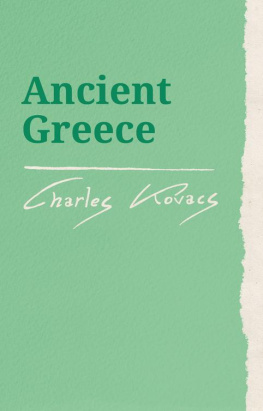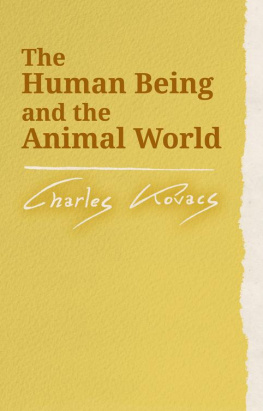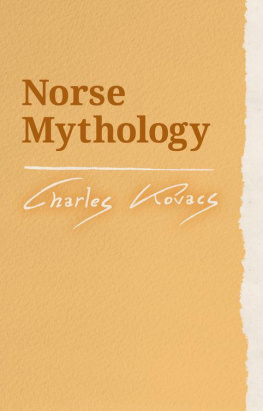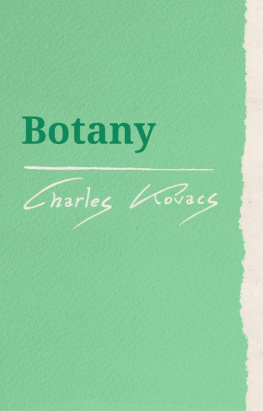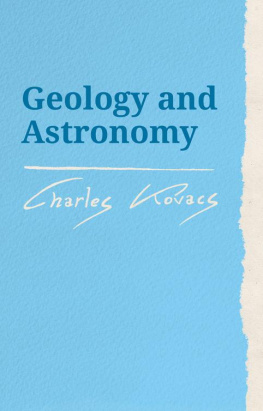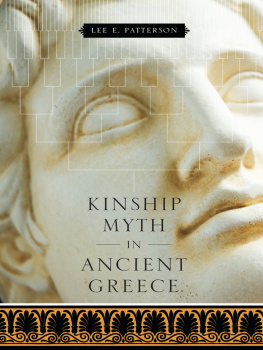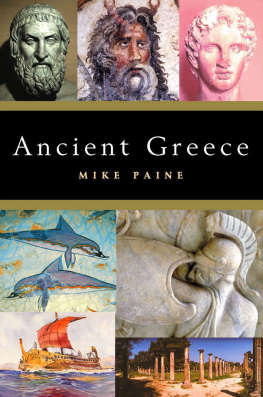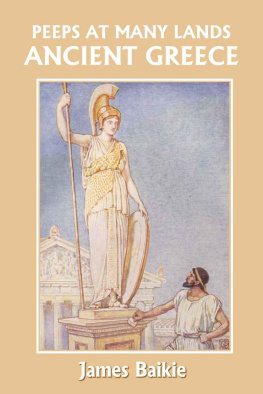Charles Kovacs - Ancient Greece
Here you can read online Charles Kovacs - Ancient Greece full text of the book (entire story) in english for free. Download pdf and epub, get meaning, cover and reviews about this ebook. year: 2020, publisher: Floris Books, genre: History. Description of the work, (preface) as well as reviews are available. Best literature library LitArk.com created for fans of good reading and offers a wide selection of genres:
Romance novel
Science fiction
Adventure
Detective
Science
History
Home and family
Prose
Art
Politics
Computer
Non-fiction
Religion
Business
Children
Humor
Choose a favorite category and find really read worthwhile books. Enjoy immersion in the world of imagination, feel the emotions of the characters or learn something new for yourself, make an fascinating discovery.
- Book:Ancient Greece
- Author:
- Publisher:Floris Books
- Genre:
- Year:2020
- Rating:5 / 5
- Favourites:Add to favourites
- Your mark:
- 100
- 1
- 2
- 3
- 4
- 5
Ancient Greece: summary, description and annotation
We offer to read an annotation, description, summary or preface (depends on what the author of the book "Ancient Greece" wrote himself). If you haven't found the necessary information about the book — write in the comments, we will try to find it.
Ancient Greece — read online for free the complete book (whole text) full work
Below is the text of the book, divided by pages. System saving the place of the last page read, allows you to conveniently read the book "Ancient Greece" online for free, without having to search again every time where you left off. Put a bookmark, and you can go to the page where you finished reading at any time.
Font size:
Interval:
Bookmark:
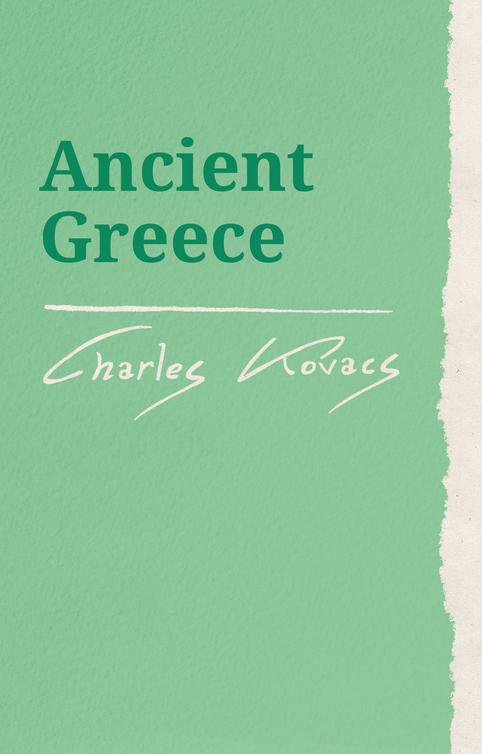
Charles Kovacs was a teacher at the Rudolf Steiner School in Edinburgh for many years. The Waldorf/Steiner schools sprang from the pedagogical ideas and insights of the Austrian philosopher Rudolf Steiner (18641925). The curriculum aims to awaken much more than merely the intellectual developmentit seeks to educate the whole being of the growing child, that each may develop their full human and spiritual potential.
During his time as a class teacher Charles Kovacs wrote his extensive main lesson notes day by day from Class 1 to 8 to help colleagues in search of suitable source material. Since then the texts have been used and appreciated by teachers in Edinburgh for many years.
This book represents the way in which one teacher taught a particular group of children. Other teachers will find their own way of presenting the material, but the content of the stories, the narrative style and the mood Kovacs tried to create provides valuable source material, particularly for a teacher new to the subject.
The Greeks lived in a country called Greece which is part of the continent of Europe. Greece is not a large country; it is a peninsula, which means it is surrounded on three sides by the sea. Around its coasts lie many islands both large and small. The winter is short and wet, and snow is rare, while the summer is long, dry and often very hot. While the stories about ancient India, Persia, Babylon and Egypt happened a very long time ago, the stories in this book are only about three thousand years old. King Arthur lived about a thousand years ago, Christ lived on earth a thousand years before that, and if we go back another thousand years we come to the time of ancient Greece.
The people of Greece loved stories about gods and heroes. They did not have books, but there were men who travelled from village to village telling the people such stories. In the evening, when the sun sank into the glittering blue sea, the people stopped work. The men came back from the fields, the fishermen came from the shore, the women came from their little houses, the children stopped playing, and they all gathered in the market square and sat down around the story-teller. He did not tell his stories as I tell them to you now. He had a harp and he told his tales, which were in verse, as if he was singing a song.
And one of these stories or songs went like this: High are the mountains you see from your village, but far in the north of Greece there towers a mountain whose snow-covered peak reaches into the clouds. It is called Mount Olympus. And the heights of Olympus are the home of the gods. There the Olympians live. They are the immortals who never die, who never grow old.
And their ruler is mighty Zeus, his long hair falls to his broad shoulders; a full beard frames his face. In his hands he holds thunderbolts, and at his feet is perched the eagle, his messenger.
Great was Zeus, the King of the Gods, but he and the other gods did not always rule the world. A race of wild giants, called Titans, had been masters of the world until Zeus and his companions defeated them in a terrible battle. And the defeated Titans were banished to caves deep in the earth, to be imprisoned forever.
But two of the wisest Titans, Prometheus and his brother Epimetheus, had helped Zeus in the battle. They knew that the wild, savage ways of the giants had to come to an end, and they were not imprisoned with their fellow Titans.
At that time, life on earth was difficult. There were many wild animals around but people had no weapons to fight them with and lived in fear and dread. However these people were also wild and lawless and Zeus often thought the best thing to do would be to destroy them all. But Prometheus took a liking to these uncivilized people and he often wondered how he could help them to master the animals they were so afraid of.
But Zeus, the King of the Gods, had no wish to see the human race become more powerful. One day, however, Prometheus decided he would help the human race whether Zeus liked it or not. And the Titan thought that the red flower of the gods was what would help man most. What was the red flower? It was fire. Today we take fire for granted. We use it to cook our food, to light our houses at night and to keep us warm. But in those days people ate their food raw and huddled together in the cold and dark for warmth and protection from the wild beasts. Prometheus also knew that animals are afraid of fire. If, for instance, you were in the wilds at night and you made a blazing fire, no wild animals would come near you.
Now, the ancient Greeks believed the sun was a fiery chariot that the Sun God Helios drove across the sky each day. Prometheus climbed a high mountain and as Helios chariot passed by he held out a long, dry stalk of the fennel plant and it soon began to smoulder. Carrying the smouldering stem, Prometheus hurried down to bring his gift to the human race. People looked on with awe and wonder when, from tiny sparks, he kindled a roaring fire. Then Prometheus told them that the red flower would not only keep the wild beasts away but would also keep them warm and cook their food. The Titan also explained that they could use fire to make metal from the earth into weapons sharper and more deadly than any animals claws.
Once the human race received the gift of fire, mankind began to master the forces of nature and make weapons and tools. However, it was not long before Zeus found out that Prometheus had disobeyed him by bringing the red flower to mankind. The King of the Gods was very angry. He has stolen the fire from us but he shall not go unpunished, Zeus cried.
Zeus called his two servants Cratos and Bia (which means Strength and Force), and said: Take the disobedient Titan far away to the east. Take him to the towering mountains called Caucasus and chain him to a rock so that he cannot move. He shall not die, but he shall remain bound to the rock forever. I, Zeus, King of the Gods swear it. Cratos and Bia dragged the struggling Prometheus to the Caucasus mountains and chained him to a steep cliff above a deep chasm. Prometheus was left alone hanging in chains from the rock as punishment for bringing fire to humanity. In the summer the sun scorched his skin and rain fell on him, in the winter he shivered in the cold winds and snow covered his limbs. But after many, many years a great hero came to the rock where he was chained and set him free. This heros name was Heracles and his many great deeds are told later.
In the meantime, the ancient Greeks became very powerful. They learnt to watch the movement of the stars; to make chariots and ships and metal weapons and tools. In the Greek stories, this time is called the Golden Age for people were never sick; they lived to a very old age and died peacefully. They had no worries and no sorrows, no aches or pains.
Prometheus had a brother called Epimetheus. Now Prometheus had often warned his brother about one thing. He said: If Zeus sends you a gift, do not take it, you must send it back. Not long after Prometheus was taken to the Caucasus, Epimetheus received a visit from the god Hermes. Hermes was both the messenger of the gods and the protector of merchants and sailors. He had wings on his cap and heels, and could fly faster than lightning. But Hermes did not come alone: he brought with him a beautiful young woman and carried a lovely little box. The Messenger God said to Epimetheus: This is Pandora, which means One-Who-Has-All-The-Gifts, for she is not only beautiful but also gentle and clever. Zeus has sent her to you so you will not be lonely now that Prometheus has gone. Zeus also sends you this box, but you can only enjoy it by looking at it from the outside. It must never be opened.
Font size:
Interval:
Bookmark:
Similar books «Ancient Greece»
Look at similar books to Ancient Greece. We have selected literature similar in name and meaning in the hope of providing readers with more options to find new, interesting, not yet read works.
Discussion, reviews of the book Ancient Greece and just readers' own opinions. Leave your comments, write what you think about the work, its meaning or the main characters. Specify what exactly you liked and what you didn't like, and why you think so.

